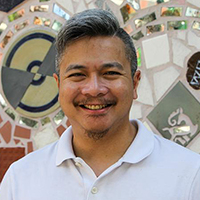by Hendy Matahelemual
A church asked me to preach as part of a series on the prophets. The week I was scheduled, the prophet was Jesus. When I prayed about what to say, I felt the Holy Spirit wanted me to talk about how to lead like Jesus. I was taken aback. “No, not leadership,” I thought.
Leadership is one of the most challenging topics for me to preach about. Perhaps this is because I struggle with self-confidence. Most of the time I don’t feel like a good leader.
Henry Nouwen’s book In the Name of Jesus: Reflections on Christian Leadership, gave me encouragement. Nouwen writes that a leader is tempted to be relevant, spectacular, and powerful. In my leadership roles, I’m tempted to try to be everything to everyone. Especially in an immigrant community, the pastor’s role is not limited to preaching and leading Bible study. We are expected to be so much more: handyman, driver, interpreter, legal counsel, realtor, and 24/7 emergency and information hotline. The community might have unrealistic expectations. If we are not careful, burnout and depression are around the corner.

When Jesus was tempted in the desert, the devil tried to get him to use his power for the wrong reasons. I think the devil uses the same tricks on leaders today. I have fallen into the “relevance” trap because I want to be recognized as a pastor who helps people. There’s an urge inside of me to be useful for my congregation, conference, and community.
There is nothing wrong with helping meet people’s needs. But the motive must be genuine love, not a desire to impress others or fill a void in one’s own life. Meeting the world’s needs might solve an immediate problem but not an eternal one. Maybe you fixed someone’s furniture or helped resolve an asylum case. These good deeds don’t meet the deepest human need: God’s love.
“God’s love can be manifested through personal connections,” Nouwen writes. “We live in a culture where everything is measured by results, achievements, and numbers, but there’s less emphasis on relationships and connections. As leaders, we need to be irrelevant to this culture by being vulnerable as individuals who also need love from God and care from the community.”
The next temptation is to be spectacular. In Indonesia, I worked as a pastor at a megachurch. We had an average attendance of more than 2,000 people and about 40 staff. Every year, we baptized around 100 people.
When I moved to the US, everything changed. I pastor a small congregation. At one point, we had fewer than ten people in our Sunday service. I had to work two or even three jobs to support my ministry. In the first three years, we baptized three people. My wife and I felt like failures. Friends back home asked why we were wasting our time and energy. They said we should return to Indonesia.
We are glad we stayed. I learned a lot leading a small congregation. The congregation sees me as I am. I cannot hide behind the pulpit on a big stage, out of reach. Others see my vulnerability and our lives become intertwined. My congregation sees our struggles in marriage, parenting, and making ends meet. At first, this seemed like frailty. But we grew to understand it as a blessing. Others love us as we are.
Nouwen says a leader needs the people as much as they need the leader. I’m trying to grow as a leader while being led by others, and to lead like Jesus by not giving in to temptation to be relevant, spectacular, or powerful.
A version of this article originally appeared in Anabaptist World and is reprinted with permission.

Hendy Matahelemual
Hendy Matahelemual is the Associate Minister for Community Engagement for Mosaic Conference. Hendy Matahelemual was born and grew up in the city of Bandung, Indonesia. Hendy lives in Philadelphia with his wife Marina and their three boys, Judah, Levi and Asher.
The opinions expressed in articles posted on Mosaic’s website are those of the author and may not reflect the official policy of Mosaic Conference. Mosaic is a large conference, crossing ethnicities, geographies, generations, theologies, and politics. Each person can only speak for themselves; no one can represent “the conference.” May God give us the grace to hear what the Spirit is speaking to us through people with whom we disagree and the humility and courage to love one another even when those disagreements can’t be bridged.
This post is also available in: Indonesia (Indonesian)
This post is also available in: Indonesia (Indonesian)
